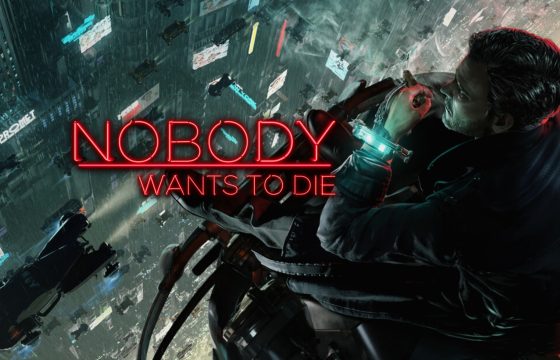When the line between reality and madness shatters, emerging from the darkness will be anything but easy.
Pneumata is an indie narrative adventure and psychological horror title developed by the small independent studio Deadbolt Interactive.
Released in 2024, Pneumata quickly stood out for its ability to blend environmental storytelling, surreal horror, and first-person exploration mechanics into an experience with a strong emotional impact.
Players take on the role of detective David Hernandez, trapped in the rural landscapes of Missouri, in the town of Milton, where a string of murders has taken place in the Clover Hill apartments.
David soon finds himself in a world filled with unsettling visions, indescribable creatures, and unresolved mysteries bound to his own memory and identity.
Pneumata thus takes shape as an introspective journey, where the line between reality and nightmare is thin, and narrative progression unfolds primarily through interaction with the environment and the discovery of visual and auditory details.
Its linear structure and oppressive atmosphere place it within the walking simulator category, yet with a strong element of tension and mystery that brings it closer to titles like Layers of Fear or Soma, while maintaining its own stylistic and thematic identity.
The total playtime averages around five hours, making it ideal for a dense, focused experience that invites reflection on themes such as consciousness, loss, and redemption.
Since its release, Pneumata has captivated fans of psychological horror and narrative-driven experiences, earning generally positive reception—particularly for its immersive atmosphere and its distinctive approach to exploring inner fears and memory.
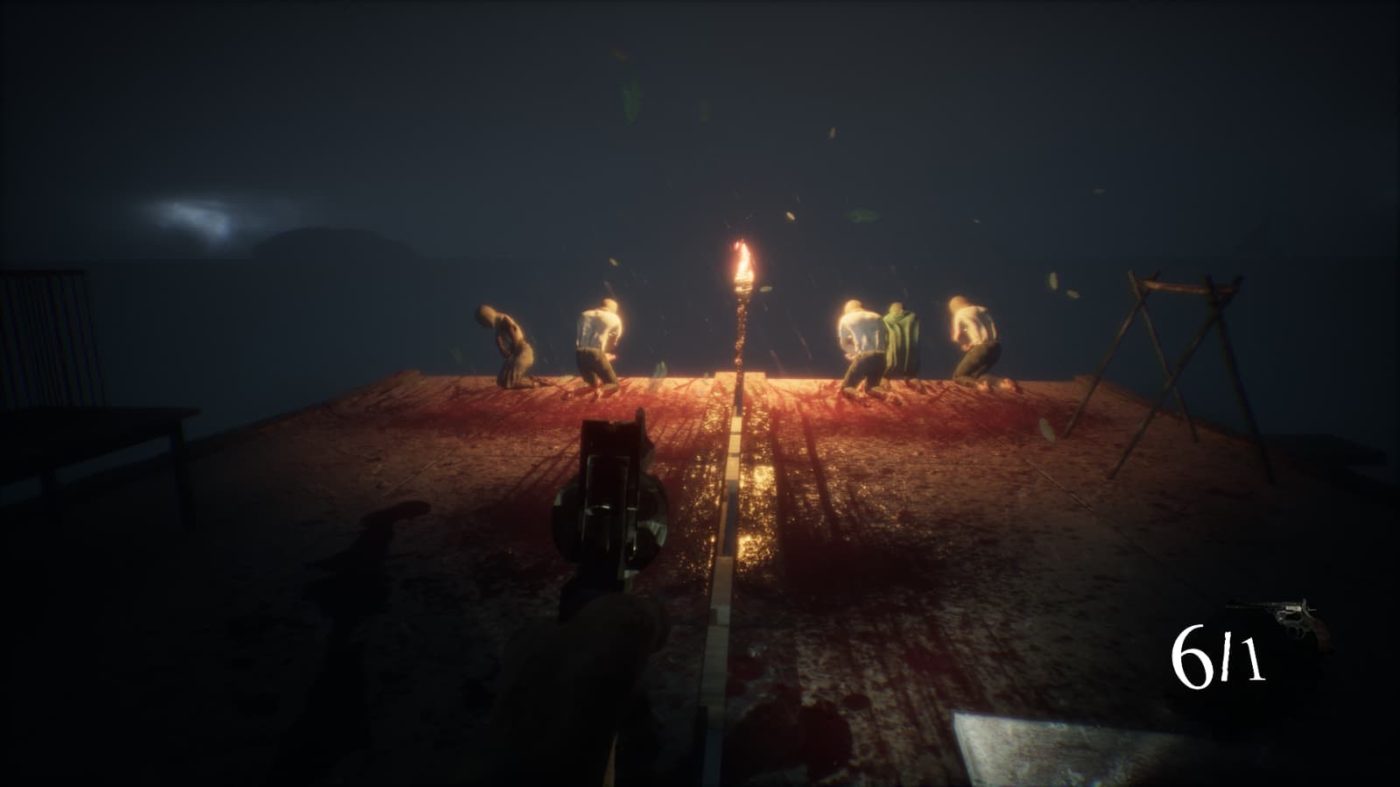
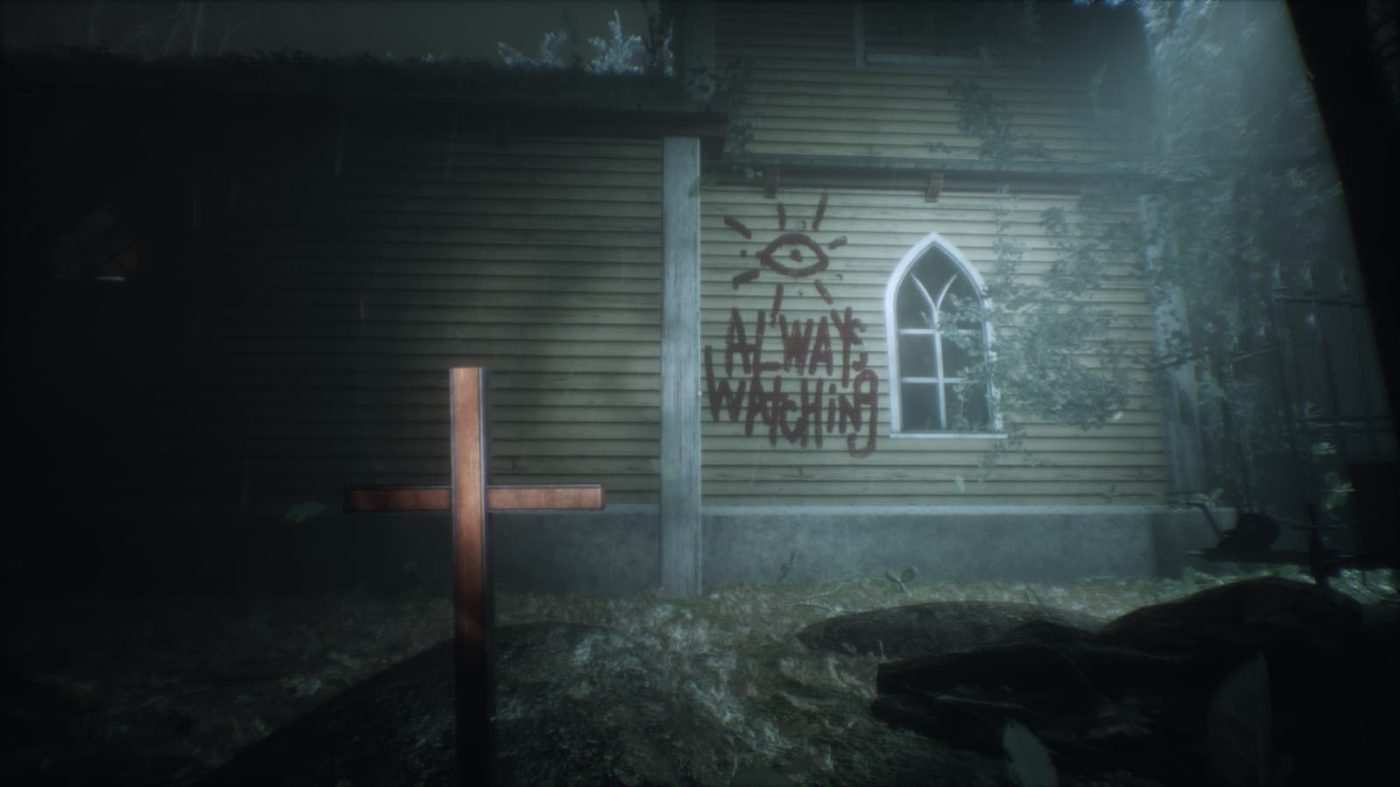
Deadbolt and Perp – Partners in Horror
Pneumata is the creation of Deadbolt Interactive, a small indie studio about which little is known, yet one that quickly earned attention and a strong reputation within the indie horror and narrative niche.
The publisher, Perp Games, specializes in supporting indie titles with a distinct artistic and experimental vision. It stands out for its thoughtful and respectful approach toward developers, providing expertise in targeted marketing while ensuring complete creative freedom.
Their mission is to bring high-quality projects to light – titles that might otherwise be overshadowed by larger commercial productions – and they have already achieved this with games such as Greyhill Incident and, most notably, Madison.
Throughout development, Deadbolt Interactive enriched the game’s visual and sonic world, dedicating immense effort to the atmosphere, a crucial element in conveying the pervasive sense of oppression and mystery that defines Pneumata.
The choice of a versatile, open-source graphics engine allowed the team to maintain focus on aesthetics and narrative without compromising smooth performance.
Ultimately, the partnership with Perp proved pivotal to Pneumata’s success and identity. Their unwavering commitment to crafting a title that redefines the conventions of narrative horror is reflected in the game’s meticulous attention to detail, thematic coherence, and distinctive artistic vision.
A Cryptic and Disturbing Narrative
The game follows David, a private detective whose world is shaken by the mysterious disappearance of his wife and an anonymous package left at his home overnight. Inside the package, he finds a videotape, revealing disturbing clues connected to the deserted town of Milton, located in the Clover Hill area.
The narrative of Pneumata unfolds as an enigmatic and fragmented tapestry, reflecting the protagonist’s disturbed mental state. The player awakens in an abandoned block, with no clear memory of their past or how they arrived there. When the VHS is played on an old player, they experience first-hand sequences that foreshadow the descent into the heart of horror.
David soon explores a desolate, crumbling Milton, immersed in a Lovecraftian cosmic horror atmosphere – a world of dark cults, grotesque mutations, and a persistent sense of lurking danger. The setting evokes the eerie aura of Silent Hill, thickening the mystery with every step.
The narrative blends investigative enigmas, fragmented recollections, and hallucinatory episodes that surface like flashbacks. David confronts his guilt, remorse, and psychological fragility, in a story that intentionally leaves many elements ambiguous, amplifying inner dread.
Key locations include an abandoned hotel (accessible via the sewers), a prison, a hospital, and a cemetery. The atmosphere is deeply unsettling, though the pacing can feel deliberately slow, and the narrative occasionally repetitive. With no overt cutscenes, the story emerges primarily through the environment, notes, interactive VHS tapes, and direct gameplay experience.
The narrative is non-linear, revealed through memory fragments, cryptic messages, and symbols scattered across the environments.
Throughout the exploration, the player encounters haunting apparitions, indefinable entities, distorted reflections, and whispers that plant seeds of doubt and fear. Though these phenomena do not present a direct threat, they create persistent tension and underscore the fragile psychological state of the protagonist.
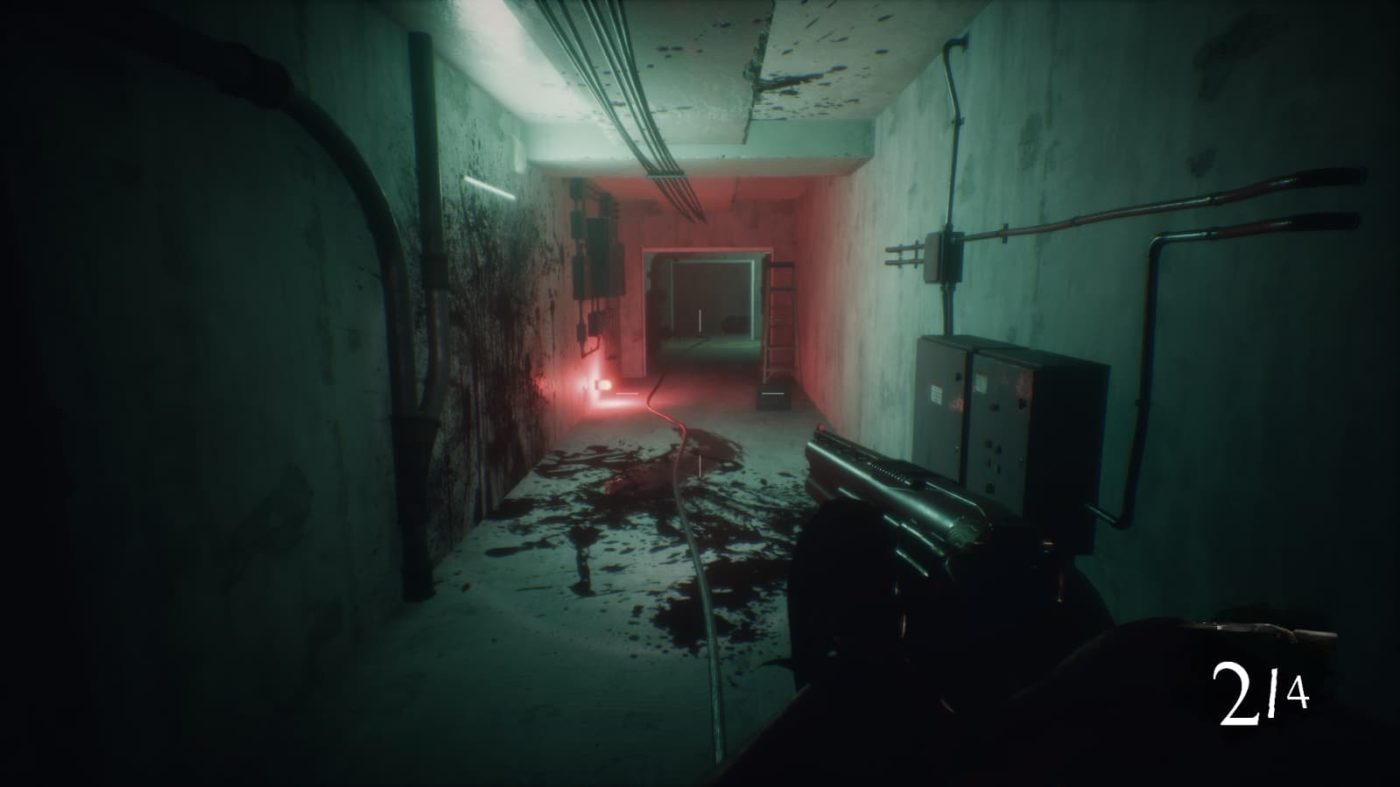
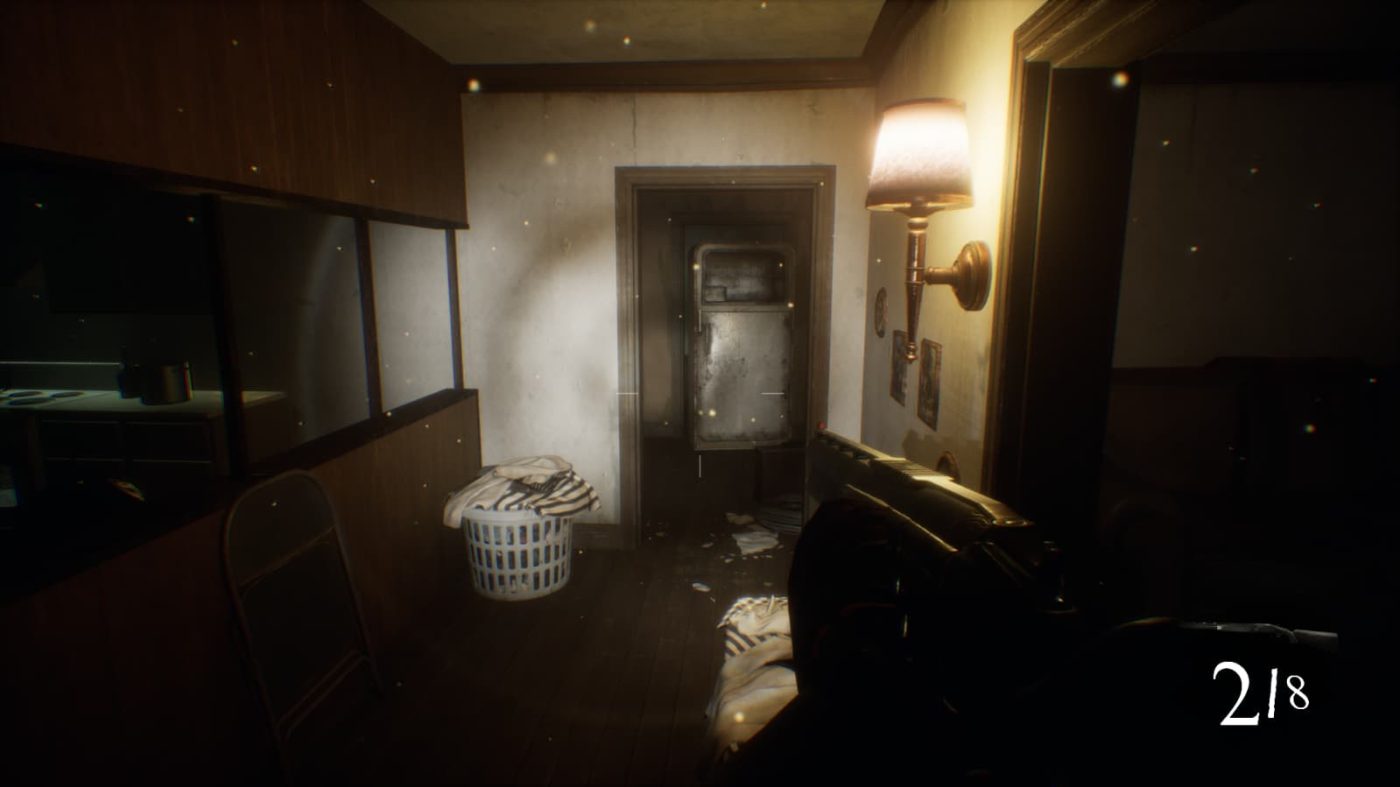
Themes in Focus
Pneumata is a title that stands out for the depth and complexity of the themes it tackles, which permeate every aspect of the gaming experience, from environmental storytelling to visual and audio design. The word “pneumata,” of Greek origin, means “spirit” or “vital breath,” already hinting at the philosophical and psychological journey the game seeks to undertake.
At its core lies the exploration of identity and memory: the protagonist awakens in an alienating environment, devoid of clear recollections, and their journey becomes a quest for self, reconstructed through the fragmentation and reintegration of memories. This mirrors the structure of human consciousness, composed of overlapping and sometimes fractured layers, often shaped by trauma or repressed experiences that subtly alter our perception of reality.
Dissociation is another central theme. The game’s settings, often surreal and distorted, visually represent the protagonist’s fragmented mental state. The sense of disorientation and isolation is amplified by the presence of spectral figures and ambiguous manifestations that seem to reflect inner fears and insecurities. In this way, Pneumata explores the human psyche in its shadowy realms, investigating how the mind can become a labyrinth in which it is easy to get lost.
Solitude is rendered not only through the physical emptiness of abandoned spaces, but also as a profound emotional state: a disconnection from one’s authentic self and from others. Yet this solitude simultaneously offers an opportunity for introspection, prompting confrontation with deep-seated fears and the pursuit of internal reconciliation.
The game further contemplates redemption and the possibility of personal transformation. Its narrative suggests that, despite confusion and suffering, a path exists to regain balance and inner peace. This spiritual undertone is reinforced through the recurring symbolic dualities of light and darkness, breath and wind—elements that evoke a process of rebirth through awareness and acceptance.
These ideas are further conveyed through powerful visual and symbolic metaphors. Narrow, suffocating corridors evoke claustrophobia and mental confinement, while open, luminous spaces emerge as the protagonist embraces or recovers aspects of their fragmented identity. In this, the environment itself becomes a reflection of psychological states, reinforcing the intimacy of the narrative journey.
Pneumata can be placed within the psychological horror genre, not through conventional scares, but by instilling a profound sense of unease, destabilizing both self and reality. The experience can be interpreted as a metaphor for contemporary alienation, where empty, cold, industrial spaces mirror a technological and dehumanizing world that distances individuals from their essence and from one another. This social dimension intertwines seamlessly with the game’s intimate and philosophical undertones, giving Pneumata a remarkably layered significance.
Ultimately, the themes explored in Pneumata are complex, multi-layered, and deeply human. The game offers no easy answers; instead, it invites the player into a profoundly emotional and reflective journey, making the inner quest the true heart of its narrative.


Top-Tier Art Design, But…
One of the most distinctive strengths of Pneumata lies in its art direction, which shapes the game’s unique, immersive atmosphere from the very first frame. Players are drawn into a world where decadent industrial design collides with dreamlike and unsettling visions, creating a striking fusion of gritty realism and disturbing surrealism.
The environments are rendered with meticulous attention to detail, silently narrating the story of a place long dead and forgotten. Rusted surfaces, broken pipes, motionless machinery, narrow and oppressive corridors – all are brought to life with rich, lifelike textures that convey a palpable sense of decay and abandonment. This stark realism is deliberately juxtaposed with more abstract and distorted sequences, where geometries warp and lighting assumes unnatural hues, highlighting the fragile boundary between reality and nightmare.
The palette leans toward dark, cool hues — greys, deep blues, and muted greens — punctuated only by rare bursts of warm, pulsating light that subtly guide the player’s gaze and emotions. Here, light is not merely visual dressing; it is an active narrative and gameplay instrument, concealing, revealing, and reshaping perception in ways that build suspense and unease.
On the technical front, Pneumata is powered by Unreal Engine 5, enabling high-fidelity visuals while maintaining steady performance across platforms. The engine’s prowess in advanced lighting and complex materials is fully harnessed to sculpt environments rich in cinematic depth. Dynamic shadows heighten immersion, while visual effects – from spectral apparitions to surreal spatial distortions – are executed with the same obsessive care. These phantoms remain blurred and indistinct, their undefined forms amplifying dread and leaving the imagination to complete the horror. The minimalist UI is elegantly integrated, ensuring nothing breaks the flow or intrudes upon the atmosphere.
In conclusion, the combination of careful artistic design and cutting-edge graphics technology gives Pneumata a strong, cohesive visual identity – one capable of evoking complex emotions and effectively supporting its psychological storytelling. The visuals are not just aesthetic achievements; they are emotional conduits, transforming gameplay into a fully immersive journey through a dark, captivating world.
Yet, not all is without blemish. Certain technical shortcomings remain, most notably a persistent blur effect that divides opinion: for some, it is a deliberate artistic choice meant to enhance the pervasive sense of alienation and disorientation; for others, it feels like a lack of sharpness unbefitting such a modern engine. There are also occasional texture streaming delays, with assets loading in only as the player approaches, and some camera movements that can induce motion sickness.




Sound That Hits the Right Notes – But Not All of Them
The sound design in Pneumata is not merely an embellishment – it is the very architecture of its dread. From the opening moments, it asserts itself as a driving narrative force, shaping tension, amplifying unease, and drawing the player deeper into the game’s oppressive atmosphere.
The score is a study in restraint: minimalist compositions built on atmospheric synths and ethereal motifs weave an unsettling, almost hypnotic sonic fabric. Every note, every texture is meticulously tuned to avoid the familiarity of conventional melodies, favoring instead drifting, amorphous soundscapes that heighten disorientation and mystery. This music evolves with the story’s pulse – stretching into passages of deceptive calm before tightening into waves of rising tension.
Environmental audio is treated with equal artistry. The hiss of corroded pipes, the faint crackle of frayed cables, the slow drip of unseen leaks, the groan of stressed metal – all are rendered with remarkable fidelity and subtle variation. Often felt more than consciously heard, these sounds breathe life into the environment, making every corner of the world feel dangerously alive.
Silence, too, is a weapon. Moments of absolute stillness sharpen anticipation, forcing the player to strain for the faintest sign of movement – and ensuring that when a sound does emerge, it lands with twice the impact.
The sonic treatment of paranormal phenomena is especially effective. Disembodied echoes, warped reverberations, and source-less distortions create a palpable sense of spatial and psychological dislocation. Coupled with finely tuned 3D spatial positioning, these cues convey the presence of something predatory and unseen – a threat felt before it is ever witnessed.
The game’s 3D spatial audio system is a triumph in itself, dynamically shifting sounds in relation to the player’s movement. A whisper to the left, a creak from above, a hum at the edge of perception – each placed with surgical precision to deepen immersion and keep the player perpetually on edge.
Behind this lies a collaboration with sound designers versed in both horror and ambient electronic composition, ensuring seamless integration between the game’s auditory and visual languages. Mixing and balancing are handled with care, preserving clarity and avoiding intrusive overlaps.
Rather than relying on cheap jump scares or sudden blasts of noise, Pneumata builds its tension like a slow coil, relying on nuance, restraint, and the unsettling interplay between presence and absence.
Yet, for all its mastery, the sound design is not without blemishes. The most notable is a recurring issue in sound equalization, where audio cues meant to be distant can feel unnervingly close – misleading players into thinking danger is near when it is, in truth, far away, and occasionally the reverse.



A Gameplay Experience Balancing Innovation and Tradition
The gameplay of Pneumata sits squarely within the realm of psychological survival horror, embracing a slow, deliberate pace that favors exploration, observation, and discovery over frenzied action or constant combat.
This design philosophy serves a clear purpose: to draw the player into a state of total immersion, where every step forward and every object examined carries narrative weight.
Mechanically, the experience is deliberately restrained. The player navigates freely through interconnected environments, interacting with objects and spaces to unearth fragments of the plot and reconstruct the missing pieces of a larger, elusive story.
Interactions are intuitive yet purposeful – collecting documents, activating terminals, and solving moderately challenging environmental puzzles that reward careful thought over reflexes. These challenges never intrude on the flow; instead, they are seamlessly woven into the narrative fabric and environmental logic, often hiding their solutions in the most unassuming objects or in barely perceptible visual and auditory cues.
The world-building in Pneumata stands out as one of the game’s most accomplished and layered elements.
What at first seem like simple abandoned locations – the city streets, the apartment complex, the sewer tunnels – gradually reveal themselves as part of a layered, coherent world, where each area has its own history and contributes to an intricate, believable ecosystem.
From the cold geometry of metallic corridors to the clutter of forgotten storage rooms and the sterile menace of hidden laboratories, every space follows its own internal logic, reflected in the placement of objects and the remnants of past events. This design transforms the environment into a silent, ever-present character, subtly shaping the player’s journey.
Recurring symbolic elements – cryptic markings, philosophical allusions, religious iconography – add a further dimension, inviting the player to interpret, speculate, and question.


Combat encounters are present, though rarely the driving force.
The threats lurking within Pneumata are more psychological than physical, often pushing the player toward evasion or stealth over direct confrontation. Yet there are moments when taking up a shotgun or handgun is no longer a choice but a necessity, as relentless swarms of twisted creatures close in with alarming ferocity.
A subtle checkpoint system and unobtrusive, minimalist interface keep the player firmly anchored in the story, free from distractions that might fracture immersion.
Here, gameplay and world-building fuse effortlessly, shaping an experience that transcends mere entertainment to deliver a deeply psychological and sensory odyssey.
Exploration, narrative-driven puzzles, and meticulously crafted environments invite the player into a state of deep absorption, only to shatter it in sudden bursts of raw survival horror — moments that pay homage to the genre’s most enduring traditions.
In these high-tension encounters, resource management becomes a matter of survival: deciding when to conserve ammunition, which melee weapon will best serve in a pinch, and how to tactically isolate the most dangerous adversaries often determines whether the player lives to take the next step forward.


Mixed Critical Reception
The critical reception of Pneumata has been generally positive, particularly among fans of indie and psychological horror titles, though not without its share of critiques.
Among the most unanimously praised aspects is its unique, immersive atmosphere, the result of a finely crafted blend of art direction, sound design, and environmental storytelling.
Critics and players alike have commended the game’s ability to instill a persistent sense of unease without relying on genre clichés such as jump scares or excessively violent combat – though both elements are present to some degree.
The choice of a slow, meditative pacing has been perceived as a strength, especially when skillfully alternated with moments of action and adrenaline.
Visually, the game – developed using Unreal Engine 5 – has often been described as high-quality, with coherent and evocative artistic direction. Detailed textures (albeit inconsistently applied) and effective use of dynamic lighting have been widely appreciated, contributing to heightened tension and reinforcing the protagonist’s sense of isolation.
From a narrative standpoint, the fragmented, symbolic storyline has been enthusiastically received by those seeking non-linear, interpretation-driven experiences.
However, this very quality has also divided audiences: some found the storytelling excessively cryptic, with a pacing that occasionally felt sluggish, leading to lapses in player engagement. The absence of explicit explanations and the heavy reliance on symbolic and metaphorical elements may frustrate those who prefer more straightforward and concrete plots.
Another recurring criticism concerns the gameplay, described by some as overly limited or monotonous. While action sequences are present from the opening to the final confrontation, several players noted that they repeat the same patterns and motivations, resulting in a sense of repetitiveness.
On the technical front, Pneumata has generally garnered positive feedback, though there have been reports of minor bugs and occasional performance issues with texture loading. Visual presentation has also proven divisive, with some perceiving it as lacking sharpness, as if softened by a subtle blur effect.
These issues, however, do not significantly undermine the overall experience, but rather highlight areas the development team could refine in future updates.
Lastly, the game’s relatively short runtime – estimated at around 5-6 hours – has been seen as a strength by those who favor concise, intense experiences, but as a drawback for players wishing for more extensive exploration or additional content.
In the end, Pneumata stands as a compelling and distinctive addition to the indie scene—a game with a crystal-clear artistic vision that rewards patience and interpretive openness. Its cryptic storytelling, measured pacing, and stripped-down mechanics will be divisive by nature, but for the right audience, they are part of its strength.



Pneumata
PRO
- Immersive, distinctive atmosphere: a masterful blend of art direction, sound design, and environmental detail delivers a uniquely sensory experience that draws the player in completely.
- Symbolic, multi-layered storytelling: a fragmented narrative that invites personal interpretation, rewarding players who appreciate deeper, more thought-provoking themes.
- Seamless balance between contemplation and action: exploration and environmental puzzles are woven naturally into the gameplay, enhancing the narrative without disrupting thematic coherence.
- Striking use of light and dynamic illumination: not just visually impressive, but an integral part of building tension and reinforcing the game’s narrative tone.
- Exceptional sound design: despite minor spatial audio inconsistencies, the soundtrack and environmental effects craft a vivid, unsettling soundscape that heightens immersion.
- Compact yet impactful narrative arc: a short but powerfully paced story that avoids unnecessary filler and maintains focus throughout.
CON
- Potentially alienating narrative complexity: the heavily symbolic, fragmented storytelling may frustrate players who prefer a straightforward, linear plot.
- Repetitive gameplay in places: even during action sequences, limited variation can reduce engagement for players seeking more dynamic pacing.
- Brief runtime: while its conciseness may appeal to some, others may find the lack of extended content or replay value limiting.
- Minor technical shortcomings: occasional bugs, modest technical constraints, and slight performance dips can detract, albeit marginally, from the overall experience.







